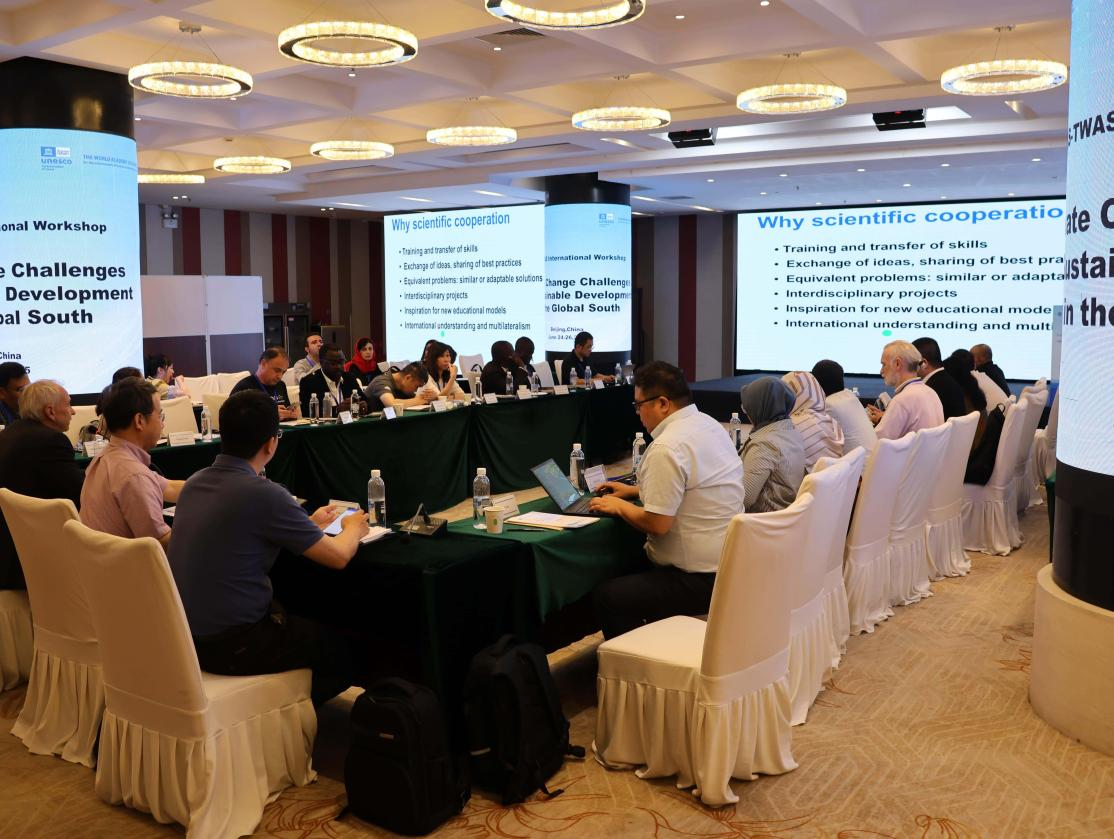News
From June 24 to 26, 2025, the Chinese Academy of Sciences (CAS) and the World Academy of Sciences (TWAS) jointly organized the International Workshop on “Climate Change Challenges and Sustainable Development in the Global South” which was hosted by the CAS-TWAS Center of Excellence for Climate and Environment Sciences (ICCES), Institute of Atmospheric Physics, Chinese Academy of Sciences.
The workshop focused on the challenges that developing countries face in addressing climate change and achieving sustainable development. Discussions were centered around two main topics: climate change impacts and strategies for adaptation. TWAS Fellow, Professor Rohana Chandrajith from the University of Peradeniya, Sri Lanka, delivered a keynote speech on groundwater resources in small island developing countries under climate change. Dr. Max Paoli from TWAS secretariat also gave a keynote address on the role of science and education in advancing climate justice. Young scientists presented 26 academic presentations covering research on the effects of climate change in areas such as ecosystems, public health, agriculture, and water resources. These studies focused on different regions of the Global South, including Africa, Asia, and Latin America.
The workshop was attended by 58 participants, including 20 TWAS Young Affiliates and one TWAS Fellow. A total of 35 international participants came from 23 countries such as Sri Lanka, Malaysia, Myanmar, Nepal, Benin, Oman, Indonesia, Thailand, Bangladesh, Burkina Faso, Madagascar and so on. Chinese participants included representatives from CAS, Peking University, North China Electric Power University, and CAS-TWAS Excellence Centers.
A special session was dedicated to the exchange between CAS-TWAS Centers of Excellence and the TWAS Young Affiliates Network(TYAN). The centers provided detailed insights into their cutting-edge work and innovative practices in key areas such as climate change, low-carbon energy, big data applications, biotechnology, water resources and environment, and emerging infectious diseases, fully showcasing the important role of the centers in promoting scientific research and technological progress in Global South countries. Both the CAS-TWAS Centers of Excellence and TYAN agreed that establishing closer ties could provide more development opportunities for young scientists in Global South countries and foster cross-regional and interdisciplinary research collaboration and knowledge sharing.
This workshop marked the first academic exchange event organized by the Chinese Academy of Sciences for TYAN and served as a significant opportunity for substantive cooperation between CAS-TWAS Centers of Excellence and TYAN. The workshop provided a platform for exchange and cooperation among young scientists from Global South countries, contributing wisdom and strength to international cooperation in the field of climate change and sustainable development.


